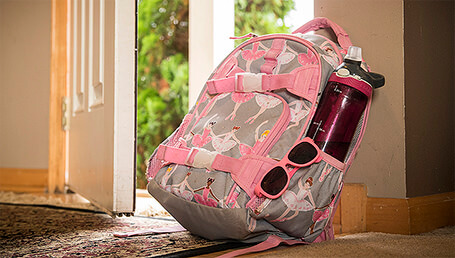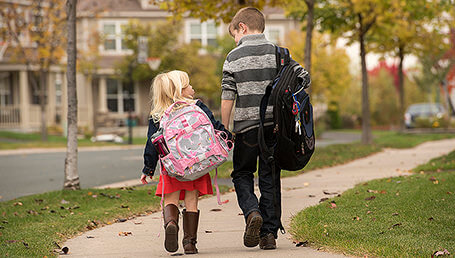Educating the educators about cystinosis

Children with cystinosis want the same opportunities as any other child at school. They want to learn how to read, play at recess, and make friends. But sometimes the challenges of living with cystinosis may get in the way. Below are some tips to help you work with your child’s school so cystinosis is less likely to get in the way of your child's experience.
Help teachers and school staff understand the facts about cystinosis.
Download Brochure
Email link to PDF
Dealing with absences
- Doctor appointments
- Feeling sick
- Hospitalizations
- Missing sleep because of medicine schedules
- Dialysis
- Kidney transplant
Speaking about cystinosis at school
Helping peers understand cystinosis can make a big difference for your child. You, your child, or the school nurse may want to speak to teachers and students at the start of the school year to explain cystinosis to them.
School day checklist for cystinosis
This checklist contains helpful tips for making your child’s life more manageable at school. Work with your child's school to complete this checklist.
Create a plan for managing your child's medicine at school
Consider:
- Reviewing medicine schedules with teachers and the school nurse so your child can get their medicine when it’s needed
- Keeping a supply of medicines with the school nurse, as needed
- Making an emergency medical plan with the school and your child’s doctor
Identify a staff member to be your child's go-to advocate
- Work with someone on the school staff who knows your child well. This person can answer questions and handle problems. A counselor, nurse, or teacher are all good options
Ask your child's teacher to make special arrangements to make the classroom more comfortable for your child
Consider asking if your child can:
- Chew gum or have mints to help mask the breath and body odour caused by medicine
- Carry a water bottle to stay hydrated
- Go to the bathroom as needed
- Wear sunglasses indoors and/or sit away from the sunlight
- Go to the nurse’s office to rest if tired
- Eat snacks during class to deal with low energy levels
- Keep an extra set of clothes with the school nurse in case of accidents
Work with the school to create a plan for keeping up with schoolwork
You might want to:
- Determine how to handle absences and missed homework assignments
- Ask your child's teacher if they can provide extra time for tests and quizzes
Discuss how cystinosis affects your child's participation in physical activities and/or recess
- Let staff know that your child may have to be excused from certain activities during gym class
- Explain why outdoor activities may need to be limited because of sun exposure
Plan what other students will be told about your child's cystinosis
- Talk to teachers about the easiest way to explain the disease. Teachers may share an informational handout with students and present talking points in class




